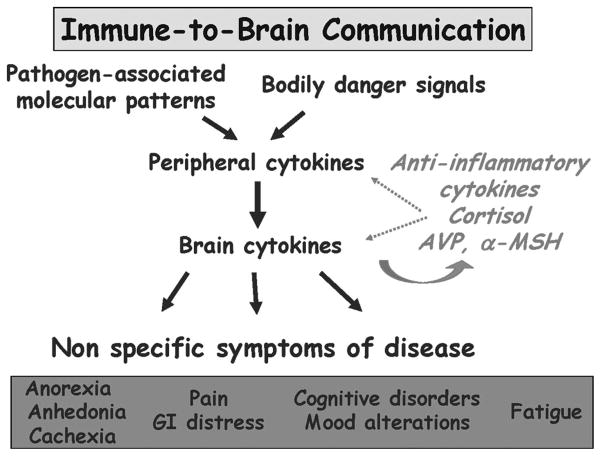Figure 2.
Immune-to-brain communication. Proinflammatory cytokines are produced at the periphery by innate immune cells in response to pathogen-associated molecular patterns or to danger signals, such as heat shock proteins released by dying cells. Peripheral proinflammatory cytokines induced the production of the same proinflammatory cytokines in the brain. The brain proinflammatory cytokines acting on various brain areas induce nonspecific symptoms of sickness, such as fatigue, depressed mood, and altered cognition. The production and action of proinflammatory cytokines are regulated both at the periphery and in the central nervous system by a number of opposing molecules including anti-inflammatory cytokines, steroid hormones such as glucocorticoids and neuropeptides such as α-melanotropin (α-MSH) and vasopressin (AVP).

